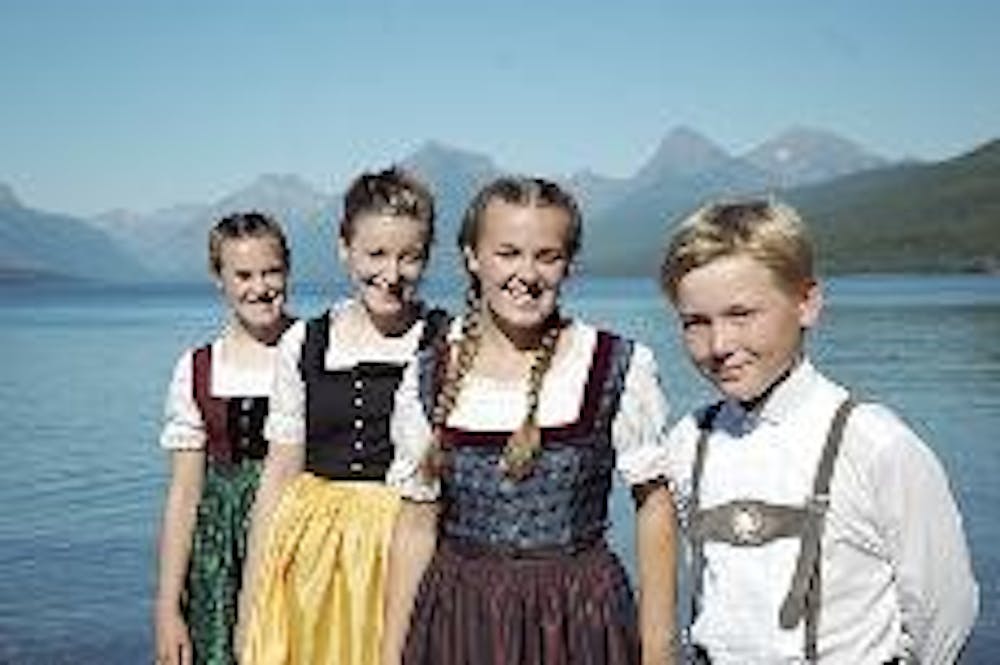Amanda von Trapp might sing Austrian folk songs wearing traditional folk dress, but she speaks with a braces-induced lisp and fights with her younger brother like any other American teenager.
The four von Trapps, great-grandchildren of Captain and Maria von Trapp, whose lives inspired "The Sound of Music," touched the audience at the Baltimore Symphony Orchestra at Strathmore on Thursday with their down-to-earth humor, close family bond and talented voices. Between the family stories and the 1938 music program, a night at the symphony became a pleasurable history lesson.
The three sisters, ages 15 to 18, wore dirndls, which are traditional German dresses, and their brother wore lederhosen. Sofia, the eldest, wore a dirndl that her great-grandmother, Maria (played by Julie Andrews in the film), wore during the family's performances in the 1930s and '40s.
It was unnerving to see flesh and blood descendents of a family that has reached mythical status through Hollywood's promotion. In contrast with the film, their performance wasn't as polished and sparkling, but it was more charming because it was real. The children sang beautiful renditions of the musical's classic "Edelweiss" and "The Lonely Goatherd," but it was their personal anecdotes that made the show interesting and substantial.
One of their best performances was "Blue Cheese," a silly folk song they said their grandfather, Warner, who was called Kurt in the film, taught them. Justin von Trapp, youngest of the crew, danced around the stage while singing about an unruly faucet. The audience was charmed by his shy but energetic performance throughout the show and he won as much applause for his jokes as he did for hitting the highest, piercing notes. They also wowed with "J'entend le Moulin," a French song with an entrancing rhythm and more onomatopoeia than actual words.
Also worthy of mention is the Baltimore Symphony Orchestra's performance, which was flawless and well practiced. The orchestra played alone for the first half of the show, conducted by Jack Everly. The program only included popular American songs from 1938, the year the von Trapp family escaped the Nazi regime in Austria and immigrated to America. Everly was warm, welcoming and glib with each introduction of a piece. His explanation of 1938 as a year when a movie ticket was 25 cents and gas was 10 cents a gallon brought groans and laughter from the audience.
This show was one of the few where children ages 3 and up were encouraged to attend, and it was refreshing to see so many young ones in the audience. During the break, little boys rolled down the wooden walkways on sneaker-skates. As was characteristic of the evening, the friendlier-than-normal ushers did not reprimand them but instead took the time to ask if they were enjoying the show.
This friendliness and mutual respect reached an emotional climax when Everly invited the audience to sing along with the symphony's rendition of "God Bless America." The room was filled with voices, from that of a curly-haired, suited adolescent to a tiny older woman with glasses frames the size of coasters.
From "Hooray for Hollywood" to the somber "My Funny Valentine," the symphony covered many genres and took the audience through a pop-culture time warp. The rollicking big band numbers and the twinkling soundtrack of Disney's "Snow White" bounced of the walls of the modern theater, giving the audience the impression of sitting inside a giant piano. The company was pleasant, the symphony was flawless and the von Trapps were charming.





